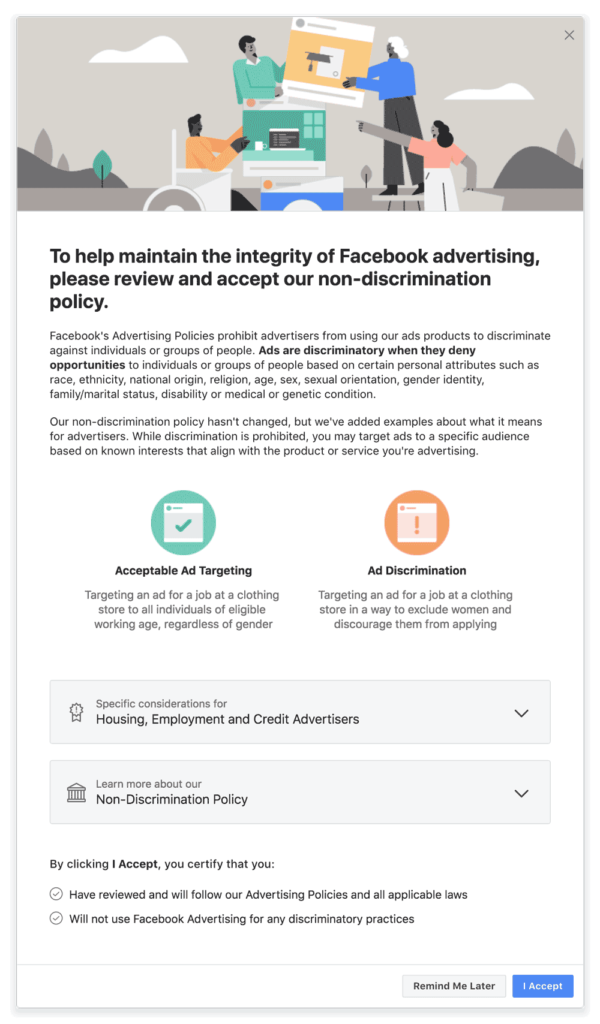You may be feeling the summertime lazies, but digital marketing news isn’t. Choosing the stories most important to the digital marketing industry this month was not an easy job – but somebody had to do it.
Here are just a few of the highlights:
- Google may soon assist China in censoring search for Chinese citizens
- Facebook says it’s doing away with over 5,000 ad targeting options
- The Medic algorithm update created some huge swings for certain websites
Don’t miss this issue of Stukent’s News You Can Use.
Your livelihood may depend on keeping up to date with developments like these.
[line]1. GOOGLE MAY BOW TO CHINESE CENSORSHIP PRESSURE
Topic: [highlight type=”dark”]SEO | Online Advertising[/highlight]
Key Point: China currently blocks both Google Search and YouTube from all Chinese-controlled internet activity. But that could be changing soon.
A Reuter’s report says Google and China have conspired to launch a censored version of Google Search that will block references to offensive words like “democracy” and “religion.” Pending final Chinese approval, Google Search could be serving China in 2019.
Find out more about Project Dragonfly here: China and Google.
ALSO SEE: How China censors its internet and controls information
[line]
2. HERE’S HOW TO FAIL AT INTERNATIONAL SEO
Topic: [highlight type=”dark”]SEO[/highlight]
 Key Point: If you’re one of the many digital marketers who sees Google’s ambitions in China as a way to reach the massive Chinese audience, then now’s the time to begin developing your strategy.
Key Point: If you’re one of the many digital marketers who sees Google’s ambitions in China as a way to reach the massive Chinese audience, then now’s the time to begin developing your strategy.
This timely article from SEMrush can help you get started. Rather than tell you what to do, though, author Aleyda Solis gives you the seven most common issues that cause international digital marketers to fail.
- Can you use a generic dot com or dot org domain, or do you need to grab a country code (ccTLD) domain?
- What do you do about content duplication issues across international web versions?
- Should you use a different URL for international versions of your ecommerce website?
Get the scoop here: 7 Ways to Fail at International SEO.
3. DOES CONTENT MARKETING WORK FOR LOCAL BUSINESSES?
Topic: [highlight type=”dark”]Ecommerce | Local Marketing[/highlight]
Key Point: For those who focus on local marketing, news about Google and China may be interesting – but it’s not applicable.
Here’s an article about an issue local marketers absolutely must consider: content marketing. Why should a dentist with a regional-only presence create content that gets widespread attention? Is the SEO benefit worth the cost?
Traditional content marketing strategy may not be the best bet for a local business. This report provides three case studies and three tips that can help you keep local business focused on the local audience.
Save money, time, and hassle when you get your audience straight. Read all about it right here: Content Marketing for Local Business.
[line]
4. EXPANDED TEXT ADS KEEP ON GROWING
Topic: [highlight type=”dark”]Online Advertising | Ecommerce[/highlight]
Key Point: Google is in business to sell ads, so providing advertisers with maximum exposure is an ongoing pursuit for the search engine giant.
Advertisers now get an extra headline and description in Expanded Text Ads. Description length also grew – from 80 to 90 characters – moving total characters allowed per ad up to 300.
That’s sizable territory.
How can you take advantage of the change? Should you discontinue your older ads now? WordStream has the answers to those and more questions about Expanded Text Ads: Google Expands Your Text Ads AGAIN! What You Need to Know.
ALSO SEE: About Expanded Text Ads.
[line]5. FACEBOOK CUTS 5,000 AD TARGETING OPTIONS
 Topic: [highlight type=”dark”]Online Advertising[/highlight]
Topic: [highlight type=”dark”]Online Advertising[/highlight]
Key Point: The number sounds extreme, but we’ll trust that Facebook has the count right. Facebook Business announced that over 5,000 Facebook Ad targeting options are being removed “to help prevent misuse.”
The official explanation gave just one example: limiting the ability for advertisers to exclude audiences that relate to attributes such as ethnicity or religion.
Does that mean you can no longer run ads promoting a new study Bible version to Christians or Medicine Wheel tee shirts to Native Americans?
Maybe so.
Facebook admits the targeting options “have been used in legitimate ways to reach people interested in a certain product or service, [but Facebook thinks] minimizing the risk of abuse is more important.”
Get the full scoop here: Keep Advertising Safe and Civil.
ALSO SEE: Facebook trims ad targeting options
6. GOOGLE EXPLAINS WHY SINGULAR/PLURAL TERMS RANK DIFFERENTLY
Topics: [highlight type=”dark”]SEO[/highlight]
Key Point: Why should a Google search for “Teddy Bear” return the Wikipedia entry for the top result, but a search for “Teddy Bears” serve up an ecommerce site?
Google’s Webmaster Trends Analyst, John Mueller, waded in on that discussion recently.
Google Search, said Mueller, may view the singular and plural of a word as “completely different elements and maybe even as completely different intent from the user side.”
It’s a fun and pertinent topic – one that’s sure to liven up any water cooler discussion. Here’s the link: Google Explains Why Singular and Plurals Rank Differently.
7. NEW INSIGHTS FOR GOOGLE’S LATEST AD PRODUCTS
Topics: [highlight type=”dark”]Online Advertising[/highlight]
Key Point: Google wants you to get the best results from their newest products — responsive search ads, responsive display ads, and Universal App campaigns. Towards that end, Google Ads wants to show you how to “create more effective ads for today’s consumer.”
From how to tweak headlines, to making descriptions unique, advice on how many ads each Search ad group should contain, and how to promote your new app at scale … Google’s got you covered in this article on the Google Ads blog.
ALSO SEE: Driving results with video at every stage of the customer journey.
8. WHO WAS IMPACTED BY THE LATEST GOOGLE ALGORITHM UPDATE?
Topic: [highlight type=”dark”]SEO[/highlight]
 Key Point: Google’s latest algorithm update (the Medic Update) rocked some boats recently. Who was impacted and what actions should you take in response to Medic?
Key Point: Google’s latest algorithm update (the Medic Update) rocked some boats recently. Who was impacted and what actions should you take in response to Medic?
According to Google, this “broad core algorithm update” doesn’t have a “fix.” Digital marketers are encouraged to keep producing “great content” and not worry about Medic.
Observers in the field say Medic focused on health and finance pages, but that ecommerce, educational, and automotive sites may also have been affected.
Prevention.com, for instance, suffered a 53 percent loss in traffic, while Carfax.com enjoyed a 68 percent boost. Those are some hefty numbers to consider.
Search Engine Land’s Barry Schwartz covered the news. Here’s where to find the coverage: Google’s Core Algorithm Update: Who and How Much?
ALSO SEE: Medic Targeted YMYL Sites.
Moving on towards fall!
We hope you’ve enjoyed this edition of Stukent’s News You Can Use.
You’re now aware of digital marketing information others have yet to discover.
That gives you an edge.
Use it!
See you next month.
BONUS INFO
Is Twitter Promote Worth the Money?
A look at the new Google Ads (AdWords) interface
How to Do a Basic Backlink Audit (in Under 30 Minutes)
When you see an article or announcement you think should be covered in News You Can Use, let us know. Be a Stukent field reporter!






